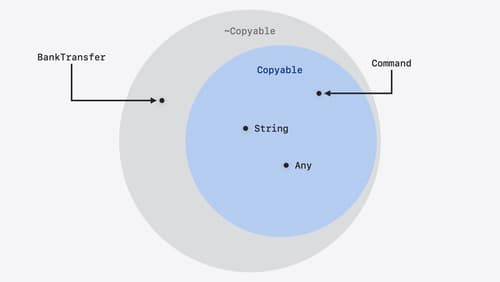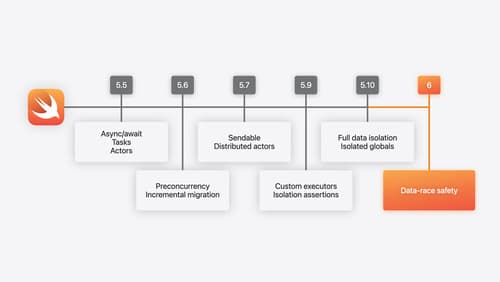trivially-destroyed type in swift
Asked on 2024-08-08
1 search
In Swift, a trivially-destroyed type is a type that does not require any special cleanup when its instances are destroyed. This concept is particularly relevant when discussing non-copyable types, which were introduced in Swift 6 to provide more control over resource management and performance.
Non-copyable types in Swift are designed to suppress the default copyability of types, making them suitable for scenarios where unique ownership is necessary. For example, a unique system resource such as a file can be represented as a non-copyable struct with a deinitializer that automatically closes it, preventing issues like multiple writers to the same file or resource leaks.
To learn more about non-copyable types and their usage in Swift, you can refer to the session Consume noncopyable types in Swift (07:05).
Relevant Sessions

Consume noncopyable types in Swift
Get started with noncopyable types in Swift. Discover what copying means in Swift, when you might want to use a noncopyable type, and how value ownership lets you state your intentions clearly.

A Swift Tour: Explore Swift’s features and design
Learn the essential features and design philosophy of the Swift programming language. We’ll explore how to model data, handle errors, use protocols, write concurrent code, and more while building up a Swift package that has a library, an HTTP server, and a command line client. Whether you’re just beginning your Swift journey or have been with us from the start, this talk will help you get the most out of the language.

What’s new in Swift
Join us for an update on Swift. We’ll briefly go through a history of Swift over the past decade, and show you how the community has grown through workgroups, expanded the package ecosystem, and increased platform support. We’ll introduce you to a new language mode that achieves data-race safety by default, and a language subset that lets you run Swift on highly constrained systems. We’ll also explore some language updates including noncopyable types, typed throws, and improved C++ interoperability.
